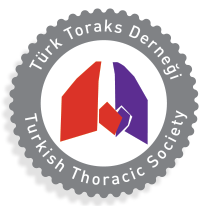Abstract
OBJECTIVES: The objective of this study was to determine the opinions of individuals who smoke outside the smoke free zone in a university hospital garden about the establishment of these zones and to identify related factors.
MATERIAL AND METHODS: The study was conducted at the smoke-free zones around Hacettepe University Sıhhiye Campus Hospitals with 182 participants over 18 years-old. Data was collected through a questionnaire using face to face interview technique in this descriptive study. The official permission was obtained prior to the data collection. SPSS 15.0 predictive analytics software was used to analyze the data.
RESULTS: Among 182 participants, 58.8% stated that they continue smoking in public areas during the presence of non-smokers. Eighty three point six percent of the participants who were aware of the health problems associated with smoking found the smoke-free zones in the hospital garden useful. The survey indicated that the awareness of the health problems associated with smoking and the usefulness of the establishment of smoke-free zones in a hospital garden was strongly correlated (p<0.0001). Fifty six point six percent of the participants stated that public areas were suitable for smoking. Smoking in outdoor areas were found harmless by 67.6% of the participants. Ninety six point seven percent of the participants stated that they had known the purpose of a smoke-free zone and 84.6% agreed that these zones were necessary. Ninety seven point four percent of the participants who agreed the necessity of smoke-free zones in the hospital garden, have found these establishments useful (p<0.0001).
CONCLUSION: The majority of the participants agreed on the necessity of the smoke-free zones, whereas the awareness of the health risks associated with passive smoking was low. As passive smoking in outdoor areas is risky for health, it is evident that public should be informed about these problems and more effort should be put on establishment of smoke-free zones in open public spaces such as hospital garden



.png)
